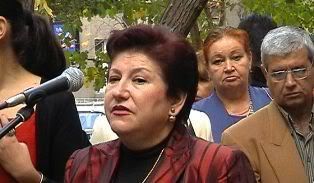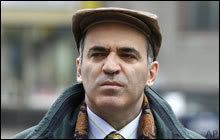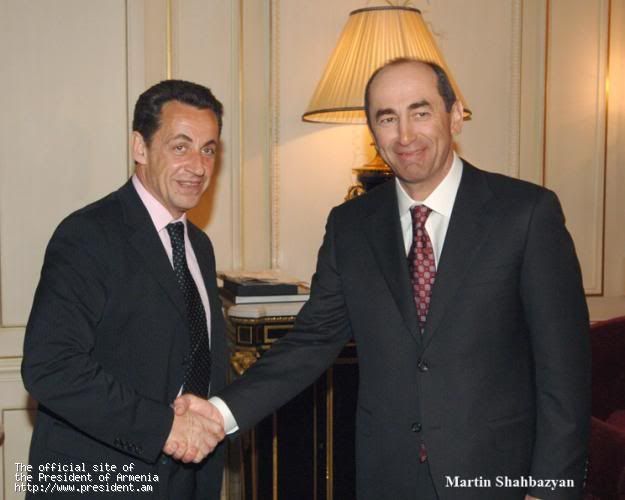From Washington, In Brief
By Emil Sanamyan
Jewish groups weigh in on congressional resolutions
In May 5 letters sent to the House Speaker Nancy Pelosi (D-Calif.) and Senate Majority Leader Harry Reid (D-Nev.), the Jewish Community of Armenia (JCA see www.jewish.am) urged congressional recognition of the Armenian Genocide.
 The letter, signed by the community leader Rimma Varzhapetyan-Feller noted that “Jews and Armenians share a tragic history of discrimination and genocide. Despite thorough documentation of the Holocaust, the Jewish community worldwide is witnessing attempts to deny this undeniable fact of history. The Jewish Armenian community lives among a people who are facing the denial of their own genocide.”
The letter, signed by the community leader Rimma Varzhapetyan-Feller noted that “Jews and Armenians share a tragic history of discrimination and genocide. Despite thorough documentation of the Holocaust, the Jewish community worldwide is witnessing attempts to deny this undeniable fact of history. The Jewish Armenian community lives among a people who are facing the denial of their own genocide.”“For these reasons, we, perhaps more than any other people, understand the pain of the Armenian Genocide and appreciate the Armenian people’s efforts to secure international recognition of this crime,” the letter stressed. “We must reject those who, for reasons of expediency, counsel silence or, even worse, denial in the face of crimes against humanity.”
The JCA letter followed an earlier communication from a Turkish Jewish organization which urged against congressional consideration of the resolutions citing Turkey’s relations with Israel and the U.S. That letter was forwarded to Congress by the American Jewish Committee (AJC), Anti-Defamation League (ADL), B’nai B’rith International and the Jewish Institute for National Security Affairs (JINSA).
On April 26, the Turkish Daily News interpreted this as opposition to the resolutions. The Jewish Journal reported on May 4 that JINSA supported the letter’s view opposing the affirmation and that in comments to the Jewish Telegraphic Agency ADL appeared to align with the Bush administration’s position. AJC and B’nai B’rith have not taken a public position on the resolutions.
At the same time, the Jewish Journal wrote, there is considerable solidarity within the Jewish American community with the Armenian American effort. It cited the House resolution’s original sponsor Rep. Adam Schiff (D-Calif.) as noting that the resolutions have been endorsed by 21 out of 30 House members and eight out of 11 Senators who are of Jewish descent. Overall, the House Resolution 106 is supported by 190 Congressmen and its Senate counterpart by 31 Senators.
Kasparov: Jewish organizations’ opposition to Genocide recognition - “a policy of double standards”
 “You can’t talk about the Holocaust and deny the Armenian Genocide in Turkey,” leader of the Russian opposition United Civil Front Garry Kasparov said in a response to a question about reports that some Jewish organizations, like ADL, oppose congressional affirmation of the Genocide.
“You can’t talk about the Holocaust and deny the Armenian Genocide in Turkey,” leader of the Russian opposition United Civil Front Garry Kasparov said in a response to a question about reports that some Jewish organizations, like ADL, oppose congressional affirmation of the Genocide. Kasparov told the National Public Radio’s “On Point” program on May 2 that he has “no doubt that Turkey will have to recognize the Genocide if it wants to join the European Union and I don’t think there is any other way but for Turkey to recognize these horrible massacres of 1915.”
“And if there are activities of [Jewish groups] supporting Turkey in their attempt to stifle the recognition of the Genocide, then it is of course another policy of double standards. And that I reject most of all.” Kasparov, who is of Armenian and Jewish descent, was forced to flee Baku during anti-Armenian pogroms there in January 1990.
The longest reining chess champion (1985-2000) made it on the Time magazine’s 2007 list of “100 People Who Shape Our World.” Time cited Kasparov’s political activism in opposition to Russia’s President Vladimir Putin.
Congressmen express displeasure with State Department Report
Co-chairs of the Congressional Armenian Caucus Reps. Frank Pallone (D-N.J.) and Joe Knollenberg (R-Mich.), together with a House Foreign Affairs Committee member Rep. Joe Crowley (D-N.Y.), sent a letter to the Secretary of State Condoleezza Rice expressing concern with the wording of the State Department’s annual report on human rights, ANCA reported on May 3.
The report incorporated Azerbaijan’s propagandistic lingo when describing Nagorno Karabakh. While U.S. officials admitted that the wording was improper, the Department eventually declined to correct it. (See this column in April 28 Reporter).
Congressmen argued that the wording set “a troubling precedent by allowing a foreign state to shape the assessments of our human rights report” and urged the Department to set the record straight.
On May 7, Rep. Pallone also addressed the issue on the congressional floor, noting that “under the Soviet Constitution, the people of Nagorno-Karabakh declared their independence. They then conducted a referendum as set forth in the same Soviet Constitution, and they are now an independent republic and should be recognized as a Nation.”
He said that any misrepresentations undermine U.S. “credibility as an impartial mediator and jeopardize prospects for successful peace negotiations.”
Forces from 25 U.S. allied countries still in Iraq
About 160,000 U.S. forces in Iraq are still augmented by over 13,000 troops from the so-called “Coalition of the Willing,” Dr. Nile Gardiner of the Heritage Foundation said on May 9.
Testifying at the House Foreign Affairs Subcommittee on International Organizations, Gardiner said that at this time, the largest contingents come from Great Britain (7,000), South Korea (2,300), Poland (900), Georgia (900), Romania (600), Australia (550) and Denmark (460).
While Polish forces are expected to start pulling out later this year, Georgia is planning to double its contingent to 2,000. The Georgian Army Deputy Chief of Staff Lt. Col. Vladimir Chachibaia told IWPR that the reinforcement will be deployed in the town of al-Kut.
"The Georgians will have their own area of activity," Mr. Chachibaia said. "Units from around nine countries will be subordinate to them.” This may also include the small Armenian contingent now based in al-Kut. Last December, the Armenian Parliament extended the deployment by another year.
New President of France elected
 Center-right candidate Nicolas Sarkozy was elected President of France after defeating Socialist Ségolène Royal in the second round on May 6. In a message of congratulations, President Robert Kocharian, who first met then Interior Minister Sarkozy last February, expressed certainty that bilateral ties will continue to expand.
Center-right candidate Nicolas Sarkozy was elected President of France after defeating Socialist Ségolène Royal in the second round on May 6. In a message of congratulations, President Robert Kocharian, who first met then Interior Minister Sarkozy last February, expressed certainty that bilateral ties will continue to expand. Last September, France’s outgoing President Jacques Chirac became the first major Western leader to visit Armenia. Like Mr. Chirac, 52-year-old President-elect Sarkozy has been a supporter of the Armenian Genocide affirmation.
Mr. Sarkozy is also seen as a proponent of closer relations with the United States. At the same time, he has been in open opposition to Turkey’s bid for European Union membership, something that U.S. administrations have long encouraged.
Turkish media reported this week that Ankara, already concerned with Sarkozy’s position on membership, is also worried that a veteran MP and Sarkozy advisor Patrick Devedjian may be appointed France’s Foreign Minister. Mr. Devedjian is being mentioned as one of several possible candidates for the position.

No comments:
Post a Comment